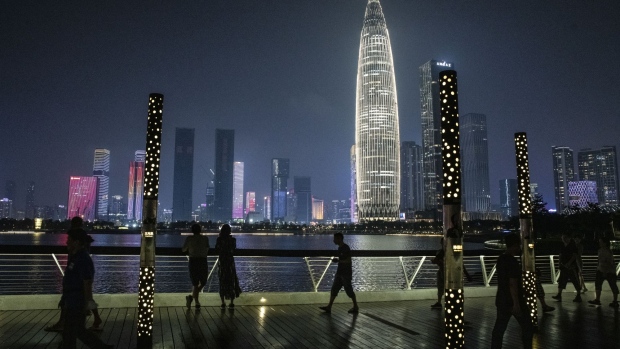Oct 8, 2021
Barclays Says China Energy Curbs Could Cut Economic Growth to 6%
, Bloomberg News

(Bloomberg) -- China’s targets to decrease the energy-reliance of its economy means power-rationing will continue into next year, and if strictly enforced, could reduce economic growth in 2021 well below consensus forecasts to 6%, according to Barclays Plc.
“The government faces a tough choice between a more significant economic slowdown and relaxing its dual targets for overall energy use,” Barclays economists led by Jian Chang said in a report. Most economists expect gross domestic product to expand by about 8% this year.
China set a nationwide target of decreasing the “energy intensiveness” of its economy -- the amount of energy used per unit of GDP -- by 3% this year as it seeks to reduce pollution. Beijing warned in August that most provinces were not on track to meet the target, leading some to cut power use to energy-intensive sectors like aluminum and steel production.
Beijing set an energy-production growth target of 2.9% for 2021, which implies a similar target for growth in energy consumption, the Barclays economists said. But energy consumption growth so far this year is above 4%, they estimate, meaning that full-year economic growth could slow to 6% if the energy consumption target is strictly enforced, they added.
Curbs on power usage for the most energy-intensive sectors are likely to continue through the first quarter of 2022, the economists said. But overall Beijing is likely to “adopt a more flexible approach to its targets” rather than tolerating a sharp slowdown in growth, according to the report. Still, even a moderate enforcement scenario could reduce growth by 1-3% in the next two quarters, they said.
©2021 Bloomberg L.P.


